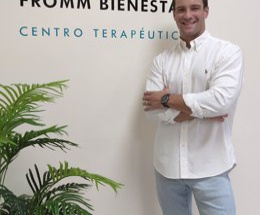According to the Hygiene Hypothesis, a little dirt in your life is a good thing. Our bodies react to exposure to dirt, germs, microbes and the stuff of life by developing resistance. Megan Scudellari writes about it in the Proceedings of the National Academy of Sciences (PNAS):
That “hygiene hypothesis,” first proposed in 1989, has become enshrined in popular culture: We’re too clean for our own good. It’s a straightforward, compelling idea. And many scientists are eager to see it thrown out.
Villa Savoye/ Wikipedia/CC BY 2.0
Yet when I have made the case that we have to start worrying about antibiotic resistance, that we have to design our homes like the great modernists did in the early 20th century to be scrubbable and minimalist, that we have to fight disease with design, that we have to get our houses out of the dirt, readers complained I was wrong, because of the Hygiene hypothesis, noting:
We need to keep challenging our immune systems to keep them in top shape. Let your kids play in the dirt. Le Corbusier was wrong. The human race lived on dirt floors for millenia and we survived and prospered.
© Inverse relationship between infectious diseases (down) and immune disorders (up)
And actually, if you read the PNAS article, we are both sort of wrong, and both sort of right. The author looks at how infectious diseases are declining while autoimmune and allergic diseases are increasing, and how this led to the hypothesis: “Perhaps the reduction in infections was causing human immune systems to malfunction in some way.” However Megan posits a more nuanced view.
Today, epidemiological, experimental, and molecular evidence support a different hypothesis: Early exposure to a diverse range of “friendly” microbes—not infectious pathogens—is necessary to train the human immune system to react appropriately to stimuli. If this new hypothesis is true, then cutting back on personal hygiene will not have an impact on rates of chronic inflammatory and allergic disorders; it will, however, increase infections. The hygiene hypothesis is a “dangerous misnomer which is misleading people away from finding the true causes of these rises in allergic disease,” says Sally Bloomfield, chair of the International Scientific Forum on Home Hygiene and an honorary professor at the London School of Hygiene and Tropical Medicine. “I’ve even seen things in the media saying we shouldn’t wash our hands. What the hell are they talking about?”
The more recent thinking is that there is an “old friends” hypothesis; Graham Rook, an emeritus professor of medical microbiology at University College London, says “We realized human beings coevolved with a whole host of organisms, and it was far more likely what was going on was that we were being deprived of organisms on which we are dependent.” But the Old Friends are very different from the pathogens that have caused so much disease and death over the generations, and the Hygiene Hypothesis is making people careless.
“The trouble is, as soon as you use the words ‘hygiene hypothesis,’ the word hygiene prejudges what the cause is,” says Bloomfield. To the public, “hygiene” is interpreted as personal cleanliness: washing hands, keeping food clean and fresh, sanitizing the home. However, because the hypothesis has been largely uncoupled from infections, the idea that we need to be less hygienic is wrong. Relaxing hygiene standards would not reverse the trend but only serve to increase the risks of infectious disease, says Bloomfield.
It’s complicated.
In an effort to at least change public behaviors, some experts now speak of “targeted hygiene”—eliminating the spread of pathogens while promoting steps to restore a diverse microbiome. For example, one can teach children to wash their hands after handling raw chicken but also encourage them to play outside in the dirt. “If your child has been out in the garden and comes in with slightly grubby hands, I, personally, would let them come in and munch a sandwich without washing,” says Rook.
Read it all here.
Who's right, Le Corbusier or my wife's fridge magnet?/CC BY 2.0
So what is the impact of this on our thesis, that in the face of antibiotic resistance we should be designing our houses like 1930s sanitariums with washable and scrubbable everything? I am not sure it changes much; Bathrooms and kitchens are still sources of infectious disease transmission and should be scrubbable. Furthermore there are more than just bugs hiding in our dust; I have written about the benefits of minimalism:
Today, we worry about dust being full of flame retardants, and overstuffed furniture being full of bedbugs; it’s not just bacteria that one can fight with minimalism. That’s why furniture changed, moving away from carved wood and upholstered chairs; “Dust containing tubules and other bacilli lodged in upholstery, in crevices, and especially in decorative features, add as regarded as a particular enemy of hygiene to be eradicated at all costs.”
But perhaps Le Corbusier was wrong, and that in the larger scheme of things, my wife’s fridge magnet is right.
See all our articles on the subject here.
Our editors found this article on this site using Google and regenerated it for our readers.













